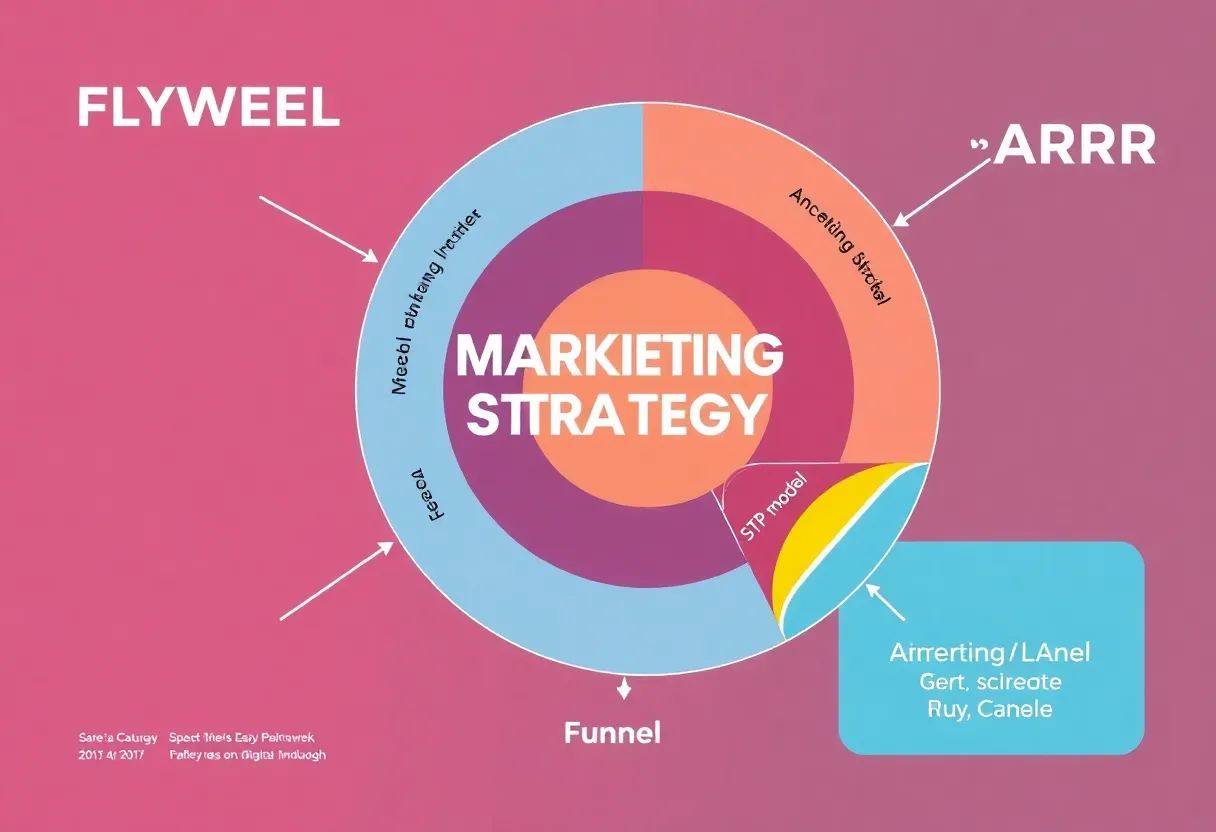

A visual representation of key digital marketing strategy frameworks that guide successful marketing efforts.
Want to target the right audience? Sponsor our site and choose your specific industry to connect with a relevant audience.
Prominent brand mentions across targeted, industry-focused articles
High-visibility placements that speak directly to an engaged local audience
Guaranteed coverage that maximizes exposure and reinforces your brand presence
Interested in seeing what sponsored content looks like on our platform?
May’s Roofing & Contracting
Forwal Construction
NSC Clips
Real Internet Sales
Suited
Florida4Golf
Click the button below to sponsor our articles:
Sponsor Our ArticlesDigital marketing frameworks are crucial for businesses to navigate the complexities of marketing. They provide structured guidelines on processes, target audiences, metrics, and more, ensuring strategic planning leads to effective execution. By utilizing these frameworks, companies can prioritize workflows, optimize budgets, and measure performance, all while adapting to the ever-evolving landscape of consumer behavior and technology.
When it comes to success in digital marketing, having a strategic framework is as crucial as having a GPS for navigation. Just like how you wouldn’t want to get lost on the road, businesses can easily veer off course without a solid plan. A digital marketing framework lays out all the key elements involved in crafting a successful marketing strategy.
These frameworks clearly outline the necessary processes, critical channels, key touchpoints, and all the essential requirements throughout marketing strategies and buyer journeys. Think of them as a well-structured map that helps not only in achieving marketing objectives but also in providing clarity and direction to the entire team.
A well-designed framework simplifies what can often be complex processes. This simplicity makes communication much easier, both within the marketing department and with other teams involved. Marketing experts emphasize the importance of these frameworks when it comes to defining clear objectives, understanding target audiences, conducting competitive analysis, and selecting the right digital marketing channels.
One of the standout benefits of these frameworks is that they allow marketers to focus on the right metrics. This focus helps in optimizing strategies and choosing AI-based tools for executing their plans, such as those meant for analysis and content generation. In today’s ever-evolving technological landscape and rapidly changing consumer behavior, having a reliable framework can help marketers stay on top of trends and adapt their strategies efficiently.
Artificial Intelligence is significantly impacting the digital marketing field. While it enhances efficiency in many ways, finding the right balance between technology and human creativity is essential for producing unique and engaging content.
Another great advantage of employing marketing frameworks is their ability to help teams prioritize workflows, optimize marketing budgets, and ultimately improve productivity. They also facilitate effective measurement of strategy performance and enable real-time optimization for achieving even better results.
In both digital and traditional marketing strategies, data analytics plays a crucial role. Several frameworks are recognized for their utility in navigating the digital marketing landscape. For instance, the Flywheel framework focuses on attracting, engaging, and delighting customers. The STP model aids in targeting, segmenting, and positioning products effectively. Then, you have the AARRR framework, particularly useful for startups looking to track user behavior and optimize sales.
There are many other models worth mentioning. Forrester’s “5 Is” model is a great way to create online communities and boost customer loyalty. If you’re focusing on habit-forming products, Nir Eyal’s Hook Model is invaluable. The RACE Planning model is fantastic for managing customer journeys and lead generation, while McKinsey’s 7S model helps in aligning marketing with internal processes. And let’s not forget the classic Marketing Funnel framework, which helps brands understand user journeys from the initial awareness stage all the way to a completed purchase.
All these frameworks serve as blueprints, allowing brands to analyze insights, adjust strategies, and nurture customer relationships. They enable organizations to adapt to emerging trends effectively.
It’s essential for organizations to reach out to marketing strategy agencies to find the frameworks that best fit their industry, target market, and specific goals. It’s also vital to note that digital marketing frameworks can evolve alongside changes in technology and consumer behavior, providing necessary structure to marketing strategies.
In a competitive environment, relying on random advertising without a strategic plan might yield some short-term gains, but long-term success is unlikely. By utilizing these frameworks, businesses can navigate the complex world of digital marketing with confidence and purpose.
European Regulatory Body Hits Booking.com with Massive €413 Million Fine
BriteCap Financial Welcomes New Members to the Leadership Team
Texas A&M International University Shines at National Awards Ceremony
Simplilearn Unveils Informative Digital Marketing Tutorial
Digital Marketing Takes the Stage in Manufacturing – A New Era of Growth
How Can You Utilize Feedback Loops to Enhance Your Digital Marketing Strategy?
How to Use Interactive Quizzes to Boost Engagement in Your Digital Marketing Strategy
Exploring the Wonders of Generative AI in Marketing: A Bright Future Ahead in Silicon Valley
Exciting Career Opportunities in Digital Marketing in 2023!
Enhancing Marketing Agility: A Practical Guide
News Summary The Concord community mourns the loss of Fred Wayne Pinion, Sr., a beloved…
News Summary In a shocking incident in South Carolina, 18-year-old Simon M. Welch was arrested…
News Summary Greenville, South Carolina, recently celebrated Michelin's 50th anniversary in the state and 35…
News Summary Spartanburg, South Carolina, has witnessed a significant 65% surge in its tourism sector…
News Summary Columbia is set to host the 4th Annual Cakie Scholarship Banquet on April…
News Summary In the wake of Erik Sickinger's resignation over serious charges, the Irmo Town…